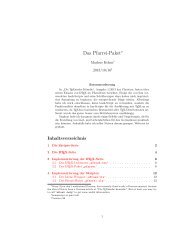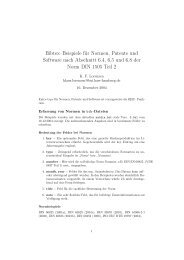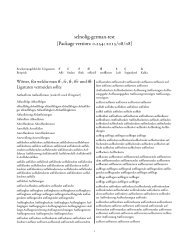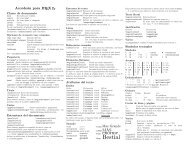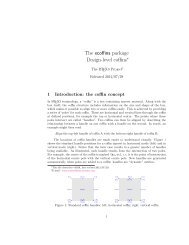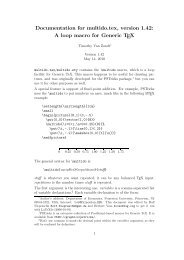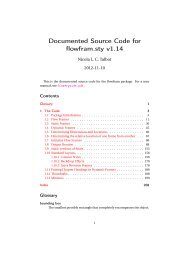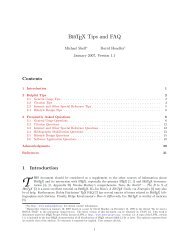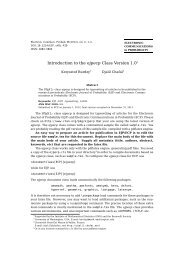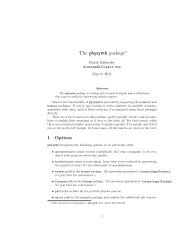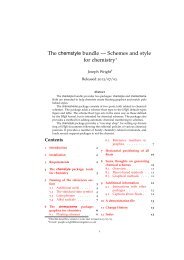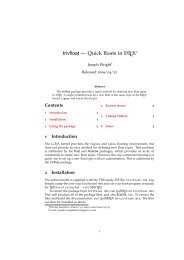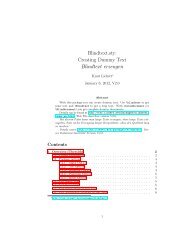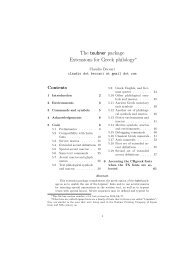Sanskrit for LATEX2ε Version 2 - CTAN
Sanskrit for LATEX2ε Version 2 - CTAN
Sanskrit for LATEX2ε Version 2 - CTAN
You also want an ePaper? Increase the reach of your titles
YUMPU automatically turns print PDFs into web optimized ePapers that Google loves.
The Pre-processor: skt.c<br />
This ANSI C program processes the source text file (with a default .skt<br />
filename extension) to produce a file suitable <strong>for</strong> L ATEX 2ε (with a default<br />
.tex extension). For example, the command skt test will convert test.skt<br />
to test.tex; fuller filenames may be used, e.g. skt foo.bar will produce<br />
foo.tex, and skt foo.bar far.boo will produce far.boo from foo.bar. If<br />
no filename is specified, you will be prompted <strong>for</strong> input and output filenames.<br />
The program passes the text from the input file to the output file unaltered,<br />
until it finds the string ‘{\skt’. It then checks the following character(s) <strong>for</strong><br />
the acceptable modifiers b f s bs fs x X i I t T u or U, and this must<br />
be followed by a space character: if this test fails it reports an error, otherwise<br />
the program converts the following input text to devanāgarī or transliteration<br />
<strong>for</strong>mat as required, until the matching ‘}’. The cycle is then repeated.<br />
Within the skt text, the following punctuation characters will be passed to<br />
the output as roman:<br />
( ) * + , - / : ; = ?<br />
Furthermore, two successive periods ‘..’ will be passed to the output as<br />
a single roman period. This technique of repeating the character twice<br />
to produce a single roman character applies to the four characters [‘’] as<br />
well; and the two-character string ‘.!’ will pass through as a single roman<br />
exclamation mark. You will need to use {\sktx ‘‘a’{}’’} to produce ‘á’<br />
(see Supplementary Notes <strong>for</strong> explanation).<br />
L ATEX command strings embedded within the skt text will be passed to<br />
the output file unchanged — but beware: command parameters will be<br />
converted ! Thus commands without parameters (e.g. \clearpage) are safe,<br />
but commands with parameters (e.g. \hspace{3mm}) will cause problems<br />
unless the parameters are meant to be converted (e.g. \underline{naaman}).<br />
A complete list of the input encoding scheme, together with the resultant<br />
devanāgarī and transliterated output, is included at the end of this document.<br />
Note: This program will stop passing text to the output<br />
file as soon as an error in the source file is detected; it<br />
will however, continue processing the input file until ten<br />
or more errors are encountered.



